Openwork Vest, Shawl Model Consisting of Two Needles
Creating an openwork vest, shawl, and blouse model with two needles involves mastering a few basic knitting techniques and following a pattern. Here’s a general guide to help you get started. For a specific pattern, you may need to refer to a detailed knitting pattern book or a pattern from a reputable source.
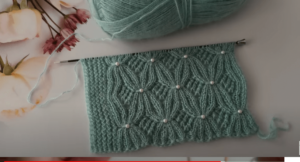
Basic Techniques
- Casting On:
- Start by casting on the number of stitches required for your project. You can use any cast-on method, such as the long-tail cast-on or the cable cast-on.
- Knit and Purl Stitches:
- The foundation of all knitting projects includes knit (K) and purl (P) stitches. Practice these until you are comfortable.
3-Yarn Over (YO):
-
- This creates an extra stitch and a hole, essential for openwork or lace knitting.
- Knit Two Together (K2tog) and Slip Slip Knit (SSK):
- These decrease stitches and help shape the fabric. K2tog leans to the right, while SSK leans to the left.
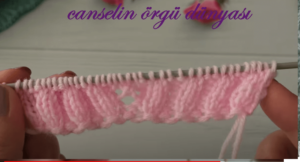
Openwork Vest Pattern (Simple Example)
Materials:
- Yarn of your choice (weight will determine the size of your project)
- Two knitting needles (size appropriate for your yarn)
- Stitch markers (optional)
- Tapestry needle for weaving in ends
Pattern:
- Cast On:
- Cast on an even number of stitches. For a small vest, you might start with 80 stitches.
- Ribbing (Optional):
- Knit 2, Purl 2 for the first 4-6 rows to create a ribbed edge.
- Openwork Pattern:
- Row 1: K2tog, YO (repeat from * to end)
- Row 2: Knit all stitches
- Repeat these two rows until the piece measures the desired length (e.g., 20 inches).
- Armholes:
- When you reach the armhole area, divide the stitches and knit each side separately, binding off a few stitches at the beginning of the next rows to shape the armholes.
- Back and Front:
- For the back, continue knitting straight.
- For the front, you may want to create a V-neck by decreasing stitches in the middle.
- Finishing:
- Once both front and back pieces are done, bind off the stitches and sew the side seams together.
- Weave in all loose ends.
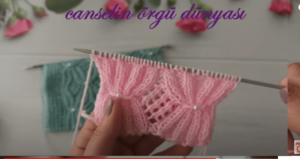
Simple Shawl Pattern (Triangle Shape)
Materials:
- Yarn of your choice
- Two knitting needles
Pattern:
- Cast On:
- Cast on 3 stitches.
- Increase Rows:
- Row 1: K1, YO, knit to end.
- Repeat Row 1, always increasing by one stitch each row (the YO creates a new stitch and an openwork pattern).
- Continue:
- Continue until the shawl reaches the desired size.
- Bind Off:
- Bind off all stitches loosely.
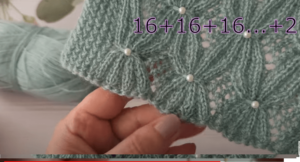
Simple Blouse Pattern (Rectangular Shape)
Materials:
- Yarn of your choice
- Two knitting needles
Pattern:
- Cast On:
- Cast on enough stitches to match the width of the blouse (e.g., 100 stitches).
- Openwork Pattern:
- Row 1: K2tog, YO (repeat from * to end)
- Row 2: Knit all stitches
- Repeat these two rows until the piece measures the desired length for the front piece.
- Back Piece:
- Repeat the same process for the back piece.
- Seaming and Finishing:
- Seam the sides and the shoulders together.
- Weave in all loose ends.
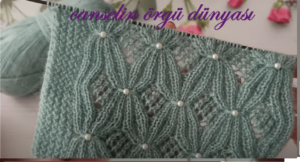
Tips:
- Swatching: Always knit a swatch to ensure your gauge matches the pattern’s requirements.
- Blocking: Block your finished pieces to help the stitches settle and the openwork pattern to open up beautifully.
- Reading Patterns: Familiarize yourself with knitting abbreviations and symbols.
For specific patterns and detailed instructions, consider checking knitting websites like Ravelry, knitting books, or video tutorials on YouTube.
video tutorial :
Openwork Vest, Shawl Model Consisting of Two Needles










